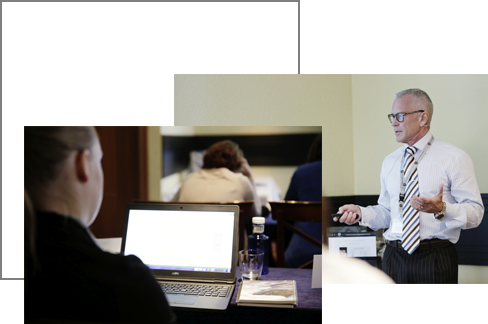The Idaho National Laboratory hosted a 1.5-day long seminar titled “Environmentally-Assisted Degradation of Structural Alloys in Light Water Reactors” on June 8th and 9th, 2010. Dr. Todd Allen, the Scientific Director of the Advanced Test Reactor National Scientific User Facility, organized the seminar. The goal of this seminar was to educate a number of junior INL staff and junior faculty from around the country on the key environmental degradation issues facing both pressurized water reactors and boiling water reactors. With the number of researchers in the U.S. studying issues relevant to light water reactors dwindling, the goal of this seminar was to reinvigorate interest and help kick start a new generation of researchers targeting better material performance in nuclear systems.
The instructors for the seminar, supplied by ANT International, were Peter Ford, Peter Scott, and Pierre Combrade who covered an introduction to stress corrosion cracking, the general phenomenology and mechanistic hypotheses of stress corrosion cracking, stress corrosion cracking of stainless steels in low temperature environments, stress corrosion cracking in boiling water reactors, corrosion fatigue issues, stress corrosion cracking in pressurized water reactors, and irradiation effects on stress corrosion cracking. The participants had backgrounds in material science, mechanical engineering, and water chemistry but in general, did not have any extensive knowledge of environmental effects in nuclear systems. Across the board, the attendees were extremely enthusiastic about the seminar. One stated “A rare and exceptional workshop. These two days bought together true deep expertise, representing over 100 years of industry experience, and an enthusiastic group of young scientists eager to bring state of the art tools to bear on cutting edge problems. Such a workshop is enormously more efficient than simply letting university researchers try to ferret out the real issues and problems on their own. These two days may have saved months of work on the part of the participants. Workshops of this type and caliber should be the standard for how new research areas are launched and promoted.”
The Idaho National Laboratory is planning a similar seminar in 2011 on zirconium alloy performance in nuclear systems.

